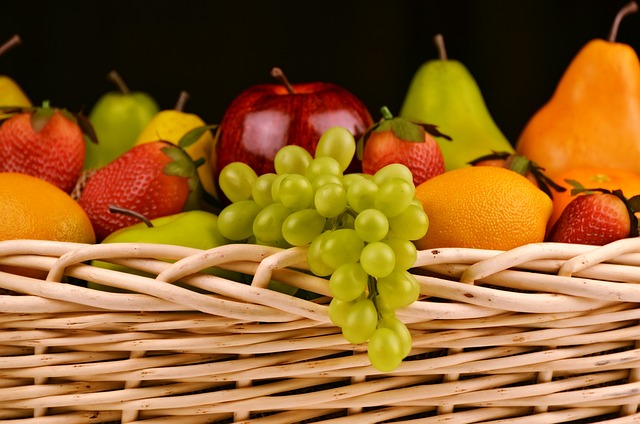-By: Bhavisha Changrani
Cancer is a complex and devastating disease, but research suggests that diet plays a significant role in both prevention and management. While no single food can “cure” cancer, incorporating specific foods and dietary patterns can significantly reduce your risk and support overall health. This article explores 20 of the best cancer-fighting foods, explaining the science behind their benefits and offering practical tips for incorporating them into your daily life.
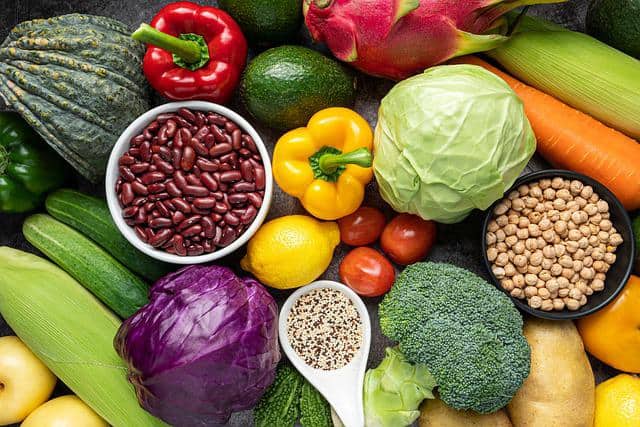
The Power of Phytochemicals and a Holistic Approach
Fruits, vegetables, whole grains, and legumes are packed with phytochemicals, plant-based compounds that offer a wide range of health benefits. Many phytochemicals have antioxidant properties, meaning they can neutralize harmful free radicals in the body, reducing DNA damage and inflammation, both of which are linked to cancer development. It’s crucial to understand that focusing on individual foods in isolation isn’t the most effective approach. A holistic dietary pattern, emphasizing variety, balance, and whole foods, is key to maximizing cancer-protective benefits.
The 20 Cancer-Fighting Powerhouses:
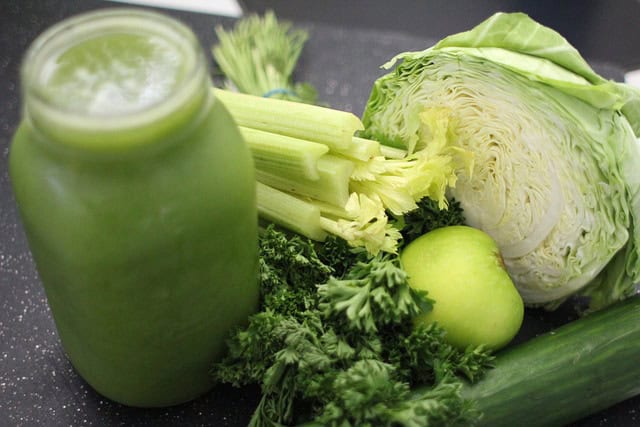
Cruciferous Vegetables (Broccoli, Cauliflower, Brussels Sprouts, Kale, Cabbage)
These vegetables contain glucosinolates, which break down into compounds like isothiocyanates (ITCs) and indole-3-carbinol (I3C). These compounds induce Phase II detoxification enzymes, helping the body eliminate carcinogens. They also inhibit cancer cell growth and induce apoptosis (programmed cell death).
Berries (Blueberries, Strawberries, Raspberries, Blackberries)
Berries are packed with antioxidants, including anthocyanins, ellagic acid, and vitamin C. These compounds neutralize free radicals, reducing DNA damage and inflammation, both crucial factors in cancer development. They may also inhibit tumor growth and metastasis.
Tomatoes
Tomatoes are notable for their high concentration of lycopene, a carotenoid with significant antioxidant properties. Lycopene protects DNA, interferes with cancer cell growth, and may inhibit angiogenesis (formation of new blood vessels that feed tumors). Cooking tomatoes, especially with a little olive oil, increases lycopene bioavailability.
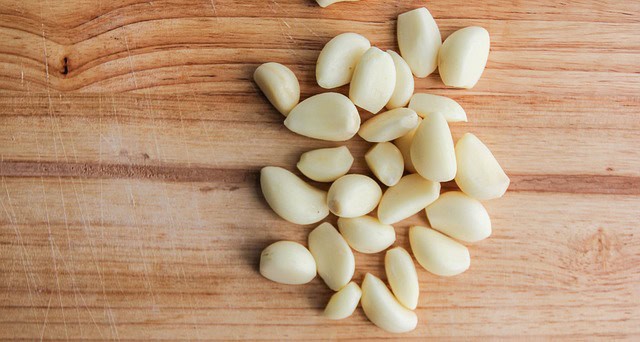
Garlic and Onions
These pungent vegetables contain allicin, a sulfur-containing compound with potent anti-inflammatory and anti-cancer properties. Allicin induces apoptosis in cancer cells, inhibits tumor growth, and may also have immune-boosting effects.
Whole Grains (Brown Rice, Quinoa, Oats, Whole-Wheat Bread):
Whole grains are high in fiber, which promotes healthy digestion and reduces the risk of colorectal cancer. Fiber adds bulk to the stool, diluting carcinogens and reducing transit time in the colon. Whole grains also provide other beneficial compounds like lignans and phytic acid.
Legumes (Beans, Lentils, Peas)
Legumes are excellent sources of fiber, protein, and phytochemicals. Their high fiber content contributes to colon health, and they contain isoflavones, particularly in soy, which may have anti-cancer properties, especially in hormone-related cancers. They also offer resistant starch, which acts similarly to fiber in the gut.
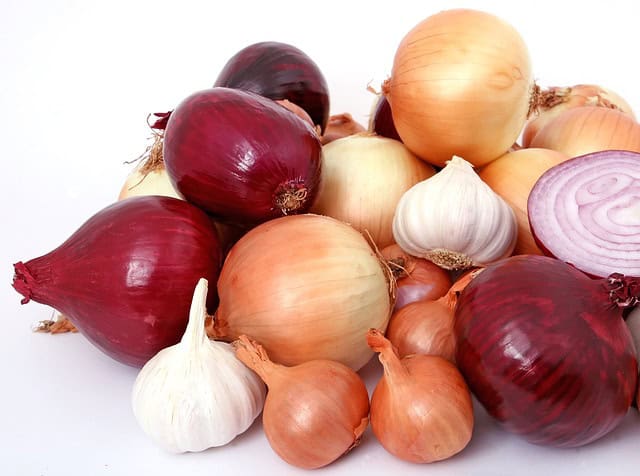
Nuts and Seeds (Almonds, Walnuts, Flaxseeds, Chia Seeds)
These are packed with healthy fats, fiber, and antioxidants. They contain omega-3 fatty acids, which have anti-inflammatory effects. They are also a source of lignans (especially flaxseeds), which can have anti-cancer effects. Nuts and seeds provide vitamin E, selenium, and other beneficial nutrients.
Green Tea
Green tea is rich in polyphenols, particularly EGCG (epigallocatechin gallate). EGCG is a powerful antioxidant that may inhibit tumor growth and metastasis. It can also induce apoptosis in cancer cells.
Fatty Fish (Salmon, Tuna, Mackerel)
These fish are rich in omega-3 fatty acids, which have anti-inflammatory effects and may interfere with cancer cell signaling pathways. Choose low-mercury options and prioritize sustainable fishing practices.
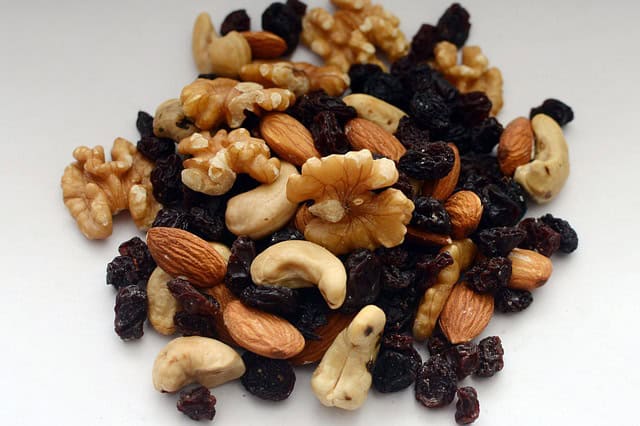
Olive Oil:
Olive oil, a staple of the Mediterranean diet, is rich in healthy monounsaturated fats and antioxidants. It may reduce inflammation, and some of its components may have direct anti-cancer effects. The higher quality of extra virgin olive oil results in a greater retention of its beneficial phytochemicals.
Spinach
Spinach is packed with vitamins, minerals, and antioxidants, including lutein and zeaxanthin, which may have protective effects against certain cancers. Spinach also provides folate, which is important for DNA repair.
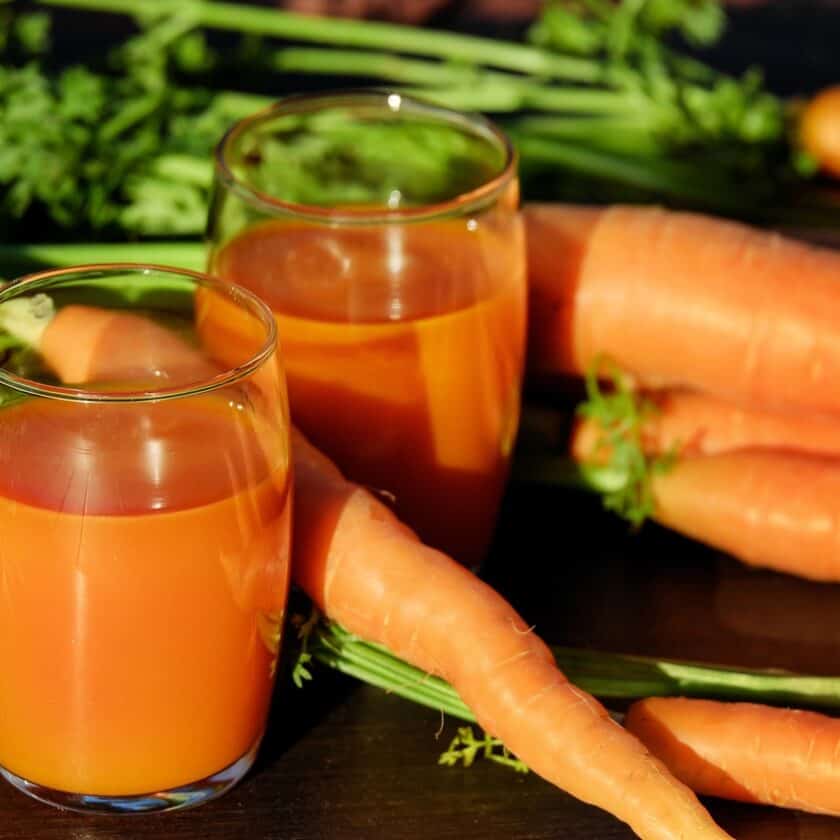
Carrots
Carrots provide a lot of beta-carotene, which the body uses to make vitamin A.Beta-carotene is an antioxidant, and vitamin A plays a role in cell growth and differentiation.
Grapes (especially Red Varieties)
Grapes, especially red varieties, are rich in resveratrol, a powerful antioxidant. Resveratrol has been studied for its potential anti-cancer effects, although more research is needed. It may interfere with cancer cell growth and metastasis.
Flaxseeds
Flaxseeds are a rich source of lignans and omega-3 fatty acids, both of which have been shown to have anti-cancer properties. Lignans can have anti-cancer effects, particularly in hormone-related cancers, while omega-3s have anti-inflammatory properties.

Apples
Apples contain polyphenols, including flavonoids, which may have anti-cancer properties, potentially by affecting cell signaling pathways. The skin of the apple contains many of these beneficial compounds, so eat the whole fruit when possible.
Pomegranates
Pomegranates are full of antioxidants, including ellagic acid and punicalagins, which may help protect against various cancers. These compounds may inhibit cell growth and induce apoptosis.
Turmeric
Turmeric contains curcumin, a compound with potent anti-inflammatory and anti-cancer properties. Curcumin has been shown to have a wide range of anti-cancer effects in laboratory studies. However, its bioavailability is limited, so it’s often taken with piperine (from black pepper) to enhance absorption.

Ginger
Ginger has anti-inflammatory properties due to compounds like gingerol. It may help reduce inflammation, and some studies suggest it may have anti-cancer effects, but more research is needed.
Mushrooms (Certain Varieties, like Shiitake and Maitake)
These mushrooms contain compounds like beta-glucans, which are polysaccharides that may stimulate the immune system and have anti-tumor effects.
Dark Chocolate (High Cocoa Content)
Dark chocolate with high cocoa content (70% or higher) contains antioxidants called flavanols, which may have anti-cancer properties. However, moderation is key, as dark chocolate can be high in calories and sugar.

Building a Cancer-Protective Diet
Incorporating these foods into your diet doesn’t mean drastically overhauling your eating habits overnight. Start small, gradually adding more fruits, vegetables, whole grains, and other cancer-fighting foods to your meals. Here are some practical tips:
Aim for variety
A colorful plate is a good indicator of a diverse diet. Different fruits and vegetables offer different combinations of vitamins, minerals, and phytochemicals.
Prioritize whole foods
Choose whole grains over refined grains, whole fruits over juices, and unprocessed foods over processed options.
Cook at home more often
This gives you greater control over the ingredients and preparation methods, allowing you to make healthier choices.
Read labels
Be mindful of added sugars, unhealthy fats, and sodium content in packaged foods.

Stay hydrated
Drink plenty of water throughout the day.
Limit red and processed meats
These have been linked to an increased risk of certain cancers.
Moderate alcohol consumption
Excessive alcohol intake is a risk factor for several types of cancer.
Maintain a healthy weight
Obesity is a significant risk factor for a range of malignancies.
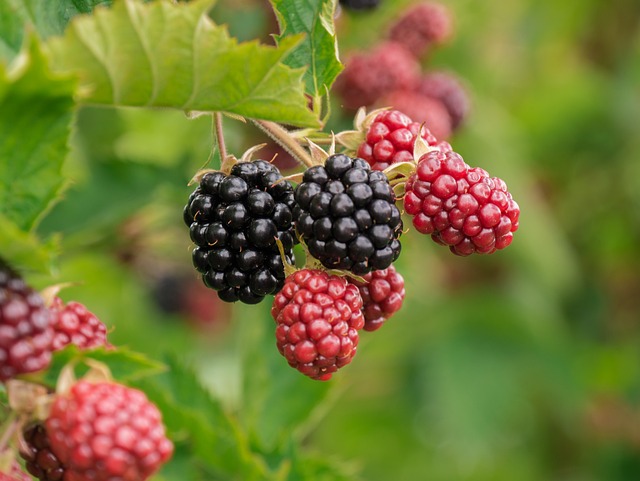
Important Considerations
Consult a healthcare professional: This information is for general knowledge and should not be considered medical advice. If you have concerns about cancer risk or are undergoing cancer treatment, consult a healthcare professional or registered dietitian for personalized advice.
Supplements
While some supplements may offer health benefits, it’s essential to talk to your doctor before taking any supplements, as some may interfere with cancer treatment or have adverse effects.
Focus on the overall diet
While these 20 foods are excellent additions to a healthy diet, it’s the overall dietary pattern that matters most. A balanced diet, combined with a healthy lifestyle, is key to cancer prevention.
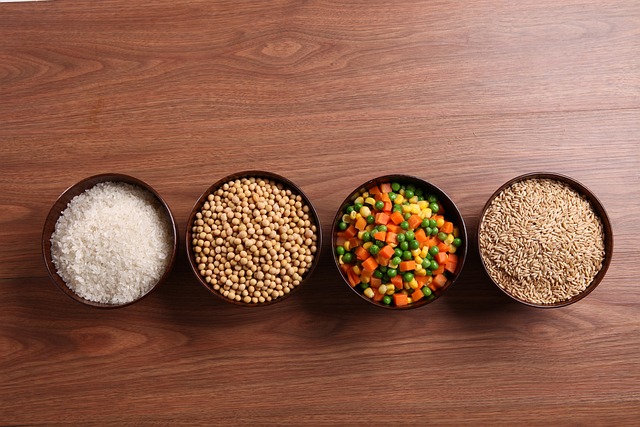
Conclusion
Diet plays a vital role in cancer prevention and management. By incorporating these cancer-fighting foods and adopting healthy dietary patterns, you can empower yourself to reduce your risk and support overall health. Remember, it’s not about making drastic changes overnight but rather about gradually incorporating healthier choices into your daily life. A balanced and varied diet, rich in fruits, vegetables, whole grains, and lean protein, is your best defense against cancer

